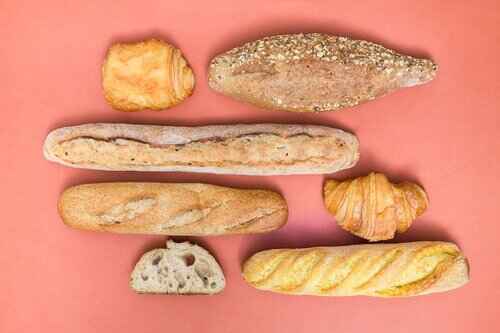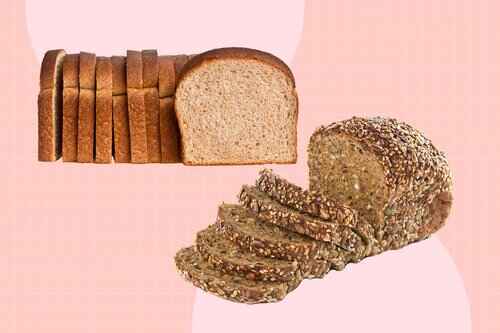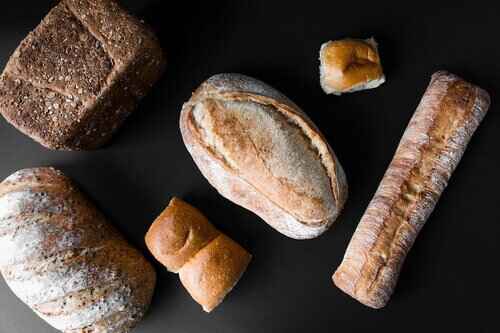
Mar 17 , 2024
In the realm of managing kidney health, dietary choices play a pivotal role.
Among the various dietary considerations, the type of bread consumed can significantly impact kidney patients' well-being.
Understanding which bread is good for kidney patients becomes crucial in crafting a kidney-friendly diet plan.
In this comprehensive guide, we delve into the intricacies of bread selection for individuals with kidney issues, offering insights and recommendations to help optimize their nutritional intake while prioritizing kidney health.

Despite recent online trends suggesting bread is "bad," it can actually be beneficial for your kidney-friendly diet.
The fiber from whole grains in bread adds flavor and satisfaction to meals.
Bread contains carbohydrates as well as other minerals and Vitamins such as B vitamins.
These nutrients are necessary for what you need in a kidney-friendly diet.
Bread can also provide kidney patients, with iron, calories, healthy fats, and more nutrients.
However, not all bread is created nutritionally equal.
Finding kidney-friendly bread is simpler than you think.
Just flip the package and check the nutrition label and ingredients list.
Bread can be a good source of fiber especially whole grain or whole wheat bread.
Fiber helps with digestion, controls blood sugar, keeps bowel movements regular, and promotes hurt and kidney health.
A food is considered a good fiber source if it has 3 or more grams of fiber per serving.
Whole grain and whole wheat bread typically have more fiber because they contain the bran and germ layers of the grain kernel, which are removed in the making of white bread.
These layers are rich in fiber and other nutrients.
Some breads contain added sugar, which is any sugar added during processing.
Keeping added sugar intake in check is important for maintaining heart health and managing blood sugar levels, which in terms support kidney health.
Check the nutrition label to see if your bread has added sugars.
Ideally, choose bread with 0 grams of added sugar.
However, if it has less than 5 grams per serving or slice, it's still okay.
Did you know bread can be high in sodium?
But there are kidney-friendly options with less than 140mg per slice.
Some have as little as 85mg.
Kidney patients used to be advised against whole-grain bread due to its phosphorus content.
Whole wheat bread does contain more phosphorus than white bread.
However, the phosphorus in whole-grain bread is organic and found naturally in foods.
Our bodies don't absorb organic phosphorus efficiently, with only 30-70% absorption.
This means whole-grain bread can and should be part of a kidney-friendly diet.
Even with higher phosphorus levels, eliminating whole grains isn't a top concern.
Potassium is sometimes added to foods by manufacturers.
People with kidney problems may need to consider their potassium intake, so it is important for them to check for Potassium additives in bread.
Breads generally contain a bit of potassium but kidney patients can still eat whole-grain bread because it contains fiber which is good for good health.
A healthy gut is essential because it helps to remove potassium from the body.
Bread usually isn't a big protein source, but some types have 5g per slice.
For kidney health, some need more protein and some need less.
You should consult a dietitian.
If you need less protein, try wheat or rye bread with 3g per slice.

Whole grain and whole wheat bread may seem similar, but there's a distinction.
Both use all 3 parts of the grain, preserving nutrients.
Whole grains can include other grains like quinoa or barley, while whole wheat only uses wheat kernels.
Both are equally nutritious for a kidney-friendly diet.
Multigrain bread uses multiple grains, but not necessarily all whole grains.
Look for "100% whole grain" or "100% whole wheat" on the label for maximum nutritional benefits.
Check the first ingredient listed, it should be whole grain or whole wheat.
Yes, people with diabetes and kidney disease can still enjoy bread if they choose the right type.
Look for bread with at least 3 grams of fiber per slice to help stabilize blood sugar levels and keep you feeling full.
Avoid bread with added sugars, as they can cause blood sugar spikes.
Consider breads, which are high in fiber and free of added sugars.

Here are some breads that are good for kidney patients:
The information on whether bread is healthy for kidney patients (or anyone) can be confusing.
Some sources say all bread is bad, while others suggest only white bread is okay.
The truth is, what matters most is the type of bread, how it's made, and what's added to it.
Breads low in sodium, phosphate additives, and added sugars are best limited.
But those high in fiber and nutrients can be great for a kidney-friendly diet.
Wheat, rye, and even some white bread can be good choices.
Consult a dietician to pick a bread that suits your renal diet and tastes good to you.
